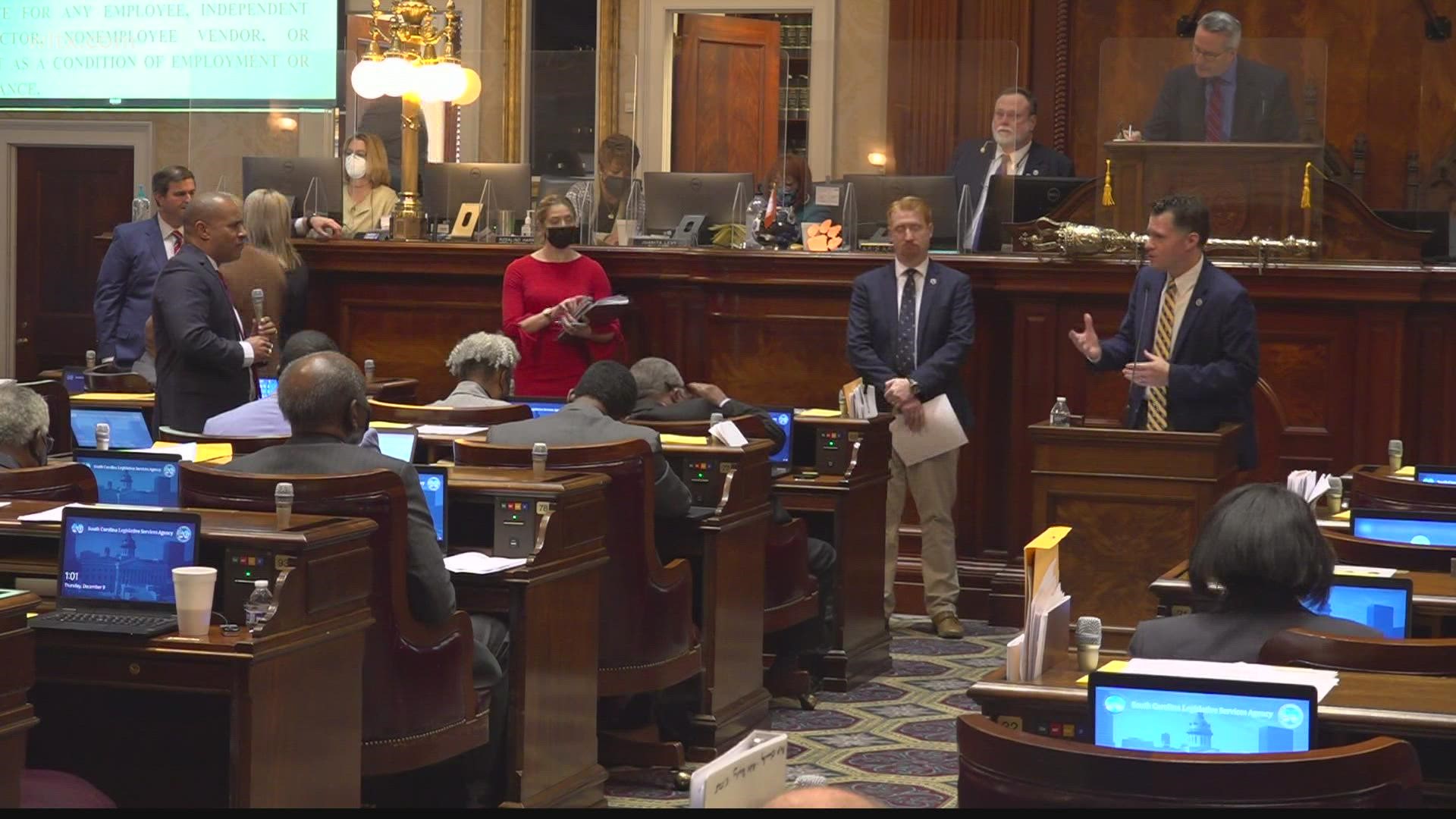COLUMBIA, S.C. — The anti-vaccine mandate bill passed in the House Friday, but even with the compromised version, some business leaders are still concerned.
Lawmakers changed House Bill 3126 late Thursday to appease private business owners, but it may still have a negative effect on them.
The bill aims to ban state agencies from requiring employees to get the COVID-19 vaccine, including first responders and school staff. It also says that employees fired from private employers for being unvaccinated are eligible for unemployment benefits. Some called this is an improvement from the original version of the bill, which prohibited private employers from requiring the vaccine, but others said it'll still cost businesses.
Rick Todd, CEO of the South Carolina Trucking Association said, “there's still some exposure to businesses because they're going to have to pay increased unemployment compensation insurance premiums, which are based upon how much turnover you have in your business."
Todd explained that if a business fires someone, it causes their unemployment insurance, that's assessed by the state, to go up.
His association, along with several other business associations and chambers, wrote a letter expressing their opposition to the original version of the bill. Todd called the latest version an improvement, but is still worried about potential consequences.
“The whole free enterprise system is set up to engage employers and employees to make the workplace safe and efficient, profitable. And so when the government injects itself into that relationship, it creates problems," said Todd.
Todd said he supports private businesses having the freedom to decide what's best for their company and employees, whether that's requiring a vaccine or not.
However, bill co-sponsor Representative David Hiott, R, Pickens, told News19 that their goal is to protect employees, and he doesn’t see this hurting business.
"I don’t think it put any undue hurt, any undue pressure or any undue burden on the business owners with that compromise we reached,” Hiott said.
Opponents called the bill government overreach, but Hiott called it a response to the Biden Administration’s vaccine mandates.
"The federal government is the one that put the mandate down on them, and each individual state is responsible for protecting their citizens,” said Hiott.
Todd also worried H. 3126, if it becomes law, could fuel lawsuits if a company fires an employee. Hiott disagreed, saying the latest version of the bill no longer details how unvaccinated employees could seek damages for being fired.
Now that the bill has passed the House, the Senate will take it up when they return in the new year.
While South Carolina lawmakers respond to the federal vaccine mandates, it's important to note that the mandates are currently being halted in federal courts.

